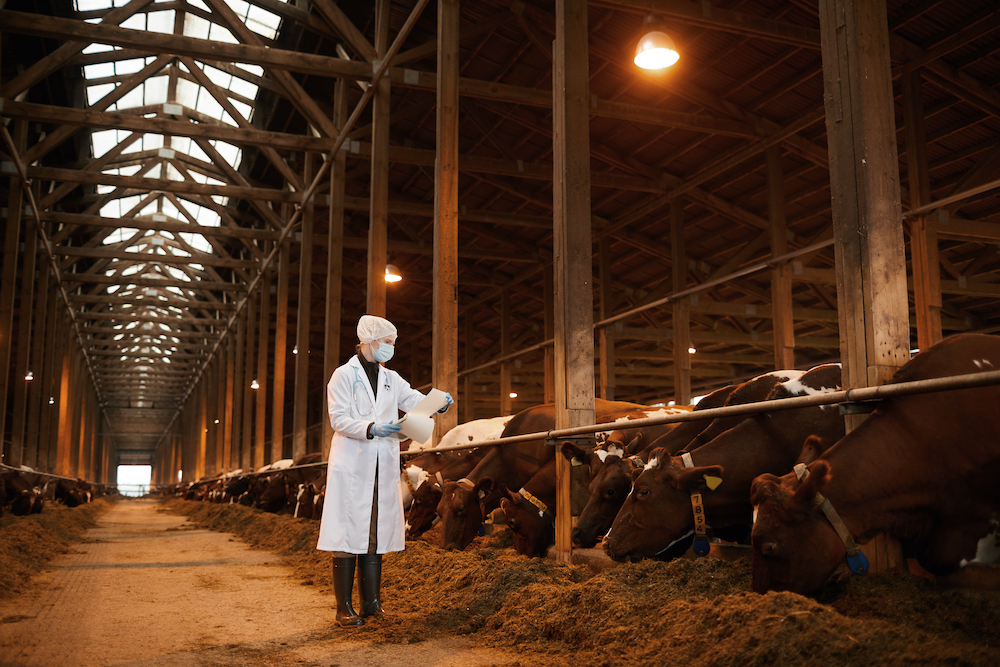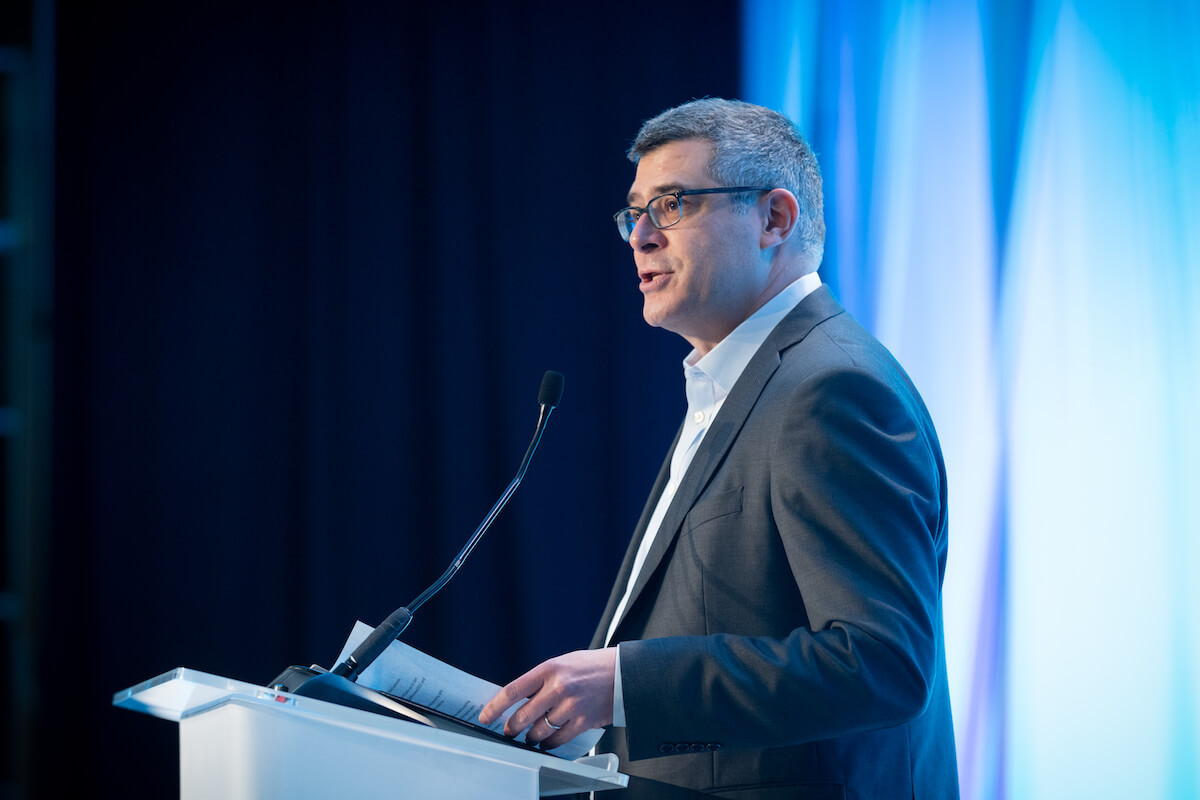ImpactAlpha, Nov. 19 – Factory closures. COVID hotspots. Worker lawsuits. Investors in the world’s largest meat, fish and dairy companies were unprepared for factory farming’s vulnerability to the spread of zoonotic, or animal-born, pandemics. Now, they’re moving to mitigate their own exposure to, and culpability for, such risks in the future.
FAIRR, a $25 trillion investor coalition addressing issues in protein supply chains, is engaging eight meat producers from the U.S., U.K., Brazil, China and Japan, to improve management practices and protect returns. An indicator of the depth of problem: Tyson Foods ordered employees to report for work while supervisors placed bets on how many workers would contract COVID, according to a lawsuit (more than 1,000 workers at Tyson’s Waterloo, Iowa plant have tested positive).
CalPERS, CalSTRS, Nordea Asset Management, UBS and other institutional investors are responding to the updated Coller FAIRR Protein Producer Index, which graded nearly three-quarters (44 of 60) animal protein firms as “high-risk” on pandemic-related criteria. The multi-year initiative will work with the companies to improve worker safety, food safety, animal welfare and antibiotic stewardship.
Diversifying proteins. “We’ve seen a huge shift of interest from investors to really understanding the environmental and social risk associated with producing animals for food,” FAIRR’s Maria Lettini told ImpactAlpha. That shift is spurring the growth of plant-based proteins and meat alternatives, like those from Beyond Meat and Impossible Foods.
Much early-stage innovation remains, well, too early for many institutional investors. Lettini says large investors are playing the sustainable protein trend by backing legacy meat companies that are diversifying their sources of proteins. FAIRR ranks Canada’s Maple Leaf Foods and Brazil’s Marfrig among the leaders. Says Lettini, “Where you get protein actually matters now.”
Overexposure. Shares of U.S.-based Tyson, Sanderson Farms and Pilgrim’s Pride Corp., as well as Brazil’s JBS SA and BRF SA all fell at least 30% between January and July 31. BlackRock, Capital Group and Vanguard are the largest among about 3,000 shareholders in the 35 largest meat and dairy corporations as of April, according to Feedback Global.
BNP Paribas, Barclays and JPMorgan Chase are the largest creditors among 200 banks that have provided $167 billion to those companies. “A lack of awareness of these risks poses a threat to profits, our planet and the population,” says Fidelity International’s Jenn-Hui Tan. “A transition to a more sustainable food system is more urgent than ever.”











